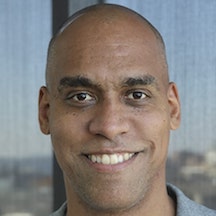 Matthew Johnson-Roberson is the new director of the Robotics Institute at Carnegie Mellon Univerity in Pittsburgh. He is the sixth scholar to lead the institute.
Matthew Johnson-Roberson is the new director of the Robotics Institute at Carnegie Mellon Univerity in Pittsburgh. He is the sixth scholar to lead the institute.
Before joining the faculty at Carnegie Mellon University this month, Dr. Johnson-Roberson was an associate professor of engineering in the department of naval architecture and marine engineering and the department of electrical engineering and computer science at the University of Michigan. He co-directed the university’s Ford Center for Autonomous Vehicles was the director of the Deep Robot Optical Perception (DROP) Lab. Dr. Johnson-Roberson joined the faculty at the University of Michigan in 2013.
“We’re at a really important inflection point in the trajectory of robotics,” Johnson-Roberson said. “There are more students interested in robotics, and people are building systems that work. We have an opportunity to determine how we want to deploy robotics in the world and how can we use that technology to produce the most good.”
Dr. Johnson-Roberson earned a bachelor’s degree in computer science from the School of Computer Science at Carnegie Mellon University in 2005. He earned his Ph.D. at the University of Sydney in Australia. He then completed a post-doctoral fellowship at the KTH Royal Institute of Technology’s Centre for Autonomous Systems in Stockholm, Sweden, and a research fellowship at the University of Sydney’s Australian Centre for Field Robotics.
“It’s an honor to come back and work with some of the same people who inspired me,” Dr. Johnson-Roberson said. “Part of this job will be figuring out how to affect change and preserve what was amazing about the Robotics Institute in first place. I want to keep the best bits while looking forward.
“I want to build an environment that brings more voices to the table.” Dr. Johnson-Roberson added. “That benefits everybody in the community. As we begin to expand inclusion, you begin to see the chaos, but hopefully and ultimately, the benefits of having a more diverse conversation. And that leads to what I think universities do so well — inspire thought, discussion, debate, and conflict that leads to better and newer ideas.”










